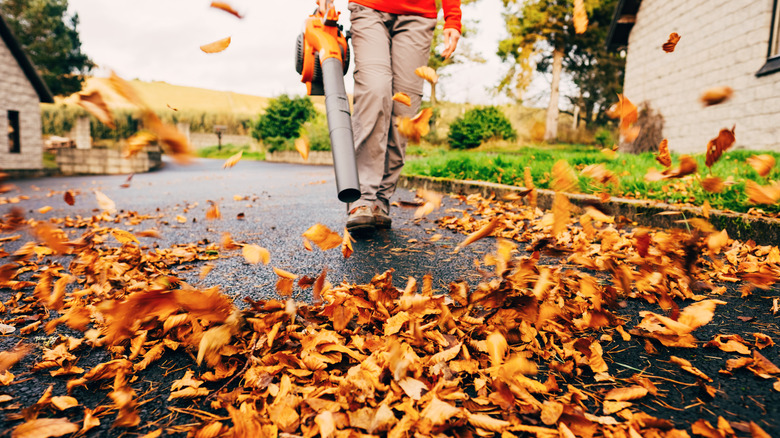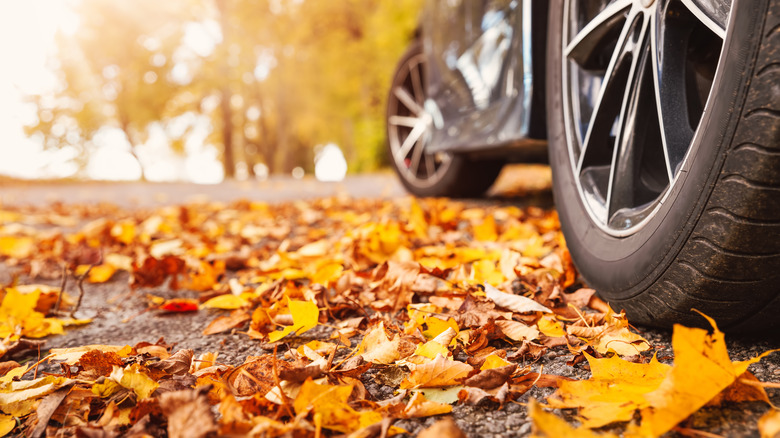What Happens If The Leaves From Your Yard End Up In The Street
Colorful autumn leaves tumbling to the ground are a sure sign that summer's over and winter is on the way. If you live in the country and your nearest neighbor is miles away, letting the fallen leaves settle in right where they are causes few problems. But if you live on a street that's shared with your neighbors, taming them is part of the cost of living in a community. Even if you believe that letting leaves blanket your lawn is an acceptable practice, the first wind will blow them into the yard next door and into the street, where they become a hazard after the next rain. In many communities, there are penalties for not corralling your tree's litter.
Accumulating leaves can block drains, possibly causing localized flooding, or become a slippery mess that's dangerous for kids riding bikes or playing tag. Far from your neighborhood, leaves that fell into storm drains and washed through your city's storm system wind up decomposing in rivers and lakes, releasing compounds that encourage algae to grow. Don't wait until you get a visit from an irritated neighbor or a city official complaining about your leaves. If you're unsure what the rules are in your city, find out. Ask a neighbor, call your city offices, or contact your community's HOA. Some jurisdictions may give you a warning, ticket you, or assess a hefty fine. Those fines, unpaid, can turn into a lien on your property.
Dealing with fallen leaves
Warnings, tickets, and fines aside, letting your leaves blow into the street or, worse, raking them into the street, is discourteous, especially if you've done it intentionally. The hazards may not matter to you, and the aesthetics might suit you, but unless you're the one living miles from your neighbor, it's incumbent on you to respect the wishes of the community. Even if you've raked and bagged your leaves, you need to follow city ordinances about when it's okay to leave them at the curb, or you may be fined. Some cities have special days for leaf pickup; others might require you to only put your leaves out on trash pickup day. And be neighborly. The person next door might not have the means to dispose of their yard waste appropriately. Before you leave a nasty note on the door, talk to them to see if there are ways you can help if you're tired of their unkempt yard.
A big pile of crunchy leaves is prime play territory for kids and playful pets, but after they've had their fill of fun, you still need to deal with the aftermath. If you wonder if you really have to rake the dead leaves in your lawn, letting some of them stay where they fell is okay as long as they don't cover more than 10% to 20% of your lawn (or blow into the street). More than that will smother the grass and promote diseases that damage your turf. You can rake them up and bag them for pickup, compost them, or you can mulch them right where they are with your mower. The resulting leaf litter will nourish your lawn and the earth under it.

